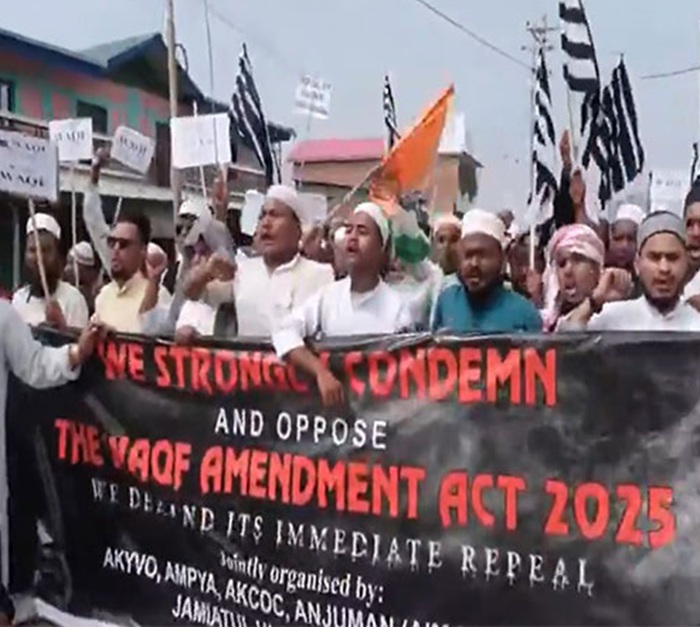Indian Catholic activists slam Bishops vote in favour of the Waqf reform
In an open letter, numerous religious and lay people committed to the defence of the underprivileged criticise the Bishops' Conference for having invited Christian parliamentarians to vote in favour of the measure that came into force yesterday and limits the autonomy of Muslims in the management of their properties. ’This is not the way to solve the problem of the evicted families in Munambam. It sets a precedent that Hindu nationalists will also use against Christians."
Delhi (AsiaNews) - India's controversial Waqf reform came into force yesterday, following its approval in teh upper house of Parliament and promulgation by the President. The law allows for the administration of property donated to Muslim institutions, whose organisations, by the will of the BJP nationalists, will now have to be open to non-Muslim representatives.
The issue continues to inflame debate in the country, with the Islamic community denouncing a violation of the rights recognised to minorities and for this reason has presented a series of appeals to the Indian Supreme Court, which should discuss them starting from 15 April.
The Catholic Church have also weighed into the debated, despite division over the position taken by the Bishops' Conference (CBCI) which in the days preceding the vote in parliament had invited Christian MPs to vote in favour of the reform proposed by the Modi government, despiet the fact that in the city of Munamban, in Kerala hundreds of Christian families have been clashing with the local Waqf administration for the safeguarding of the ownership of their land.
This advice disconcerted many Indian Catholics who yesterday expressed their opposition in an open letter to the bishops of India, signed by numerous authoritative voices of the local Church, known for their commitment to defending the rights of the marginalised.
Signatories included, among others, the journalist and activist John Dayal, the Jesuits Cedric Prakash, Frazer Mascarenhas and Prakash Louis, Sr. Dorothy Fernandes, and the theologian Astrid Lobo Gajiwala.
‘The new law,’ they write, ’introduces significant changes in the management of Waqf properties, including the inclusion of non-Muslims in Waqf Councils, an issue that has aroused widespread apprehension and opposition, particularly from the Muslim community and various political parties. One of the main concerns is that the legislation violates the institutional autonomy of a religious minority.’
‘While we understand that the Catholic community of Kerala is currently facing an agonising situation in Munambam, where 400 to 600 Christian families in a coastal village are threatened with displacement due to a local Waqf claim to the land,’ the document continues, ’we believe that this is a local issue that should be addressed by legal, negotiations and conciliatory measures. This case, already in the judicial evaluation phase, should not have become a reason to support a national legislative change that will now have far-reaching implications for another minority religious community. The letter from the Episcopal Conference risks legitimising state interference under the guise of reform’.
The signatories warn that ‘responses shaped primarily by immediate or local anxieties can inadvertently lead to consequences that also affect the long-term interests of the Christian community. A precedent that allows state interference in the affairs of one minority could open the door to similar intrusions into the rights and governance of other religious communities, including Christians.’
Recalling the growing pressures from the political authorities on Christian institutions and the drastic increase in violence from Hindu fundamentalists, the letter asks the bishops to ‘be particularly vigilant in safeguarding the broader principles of minority rights and religious freedom. As citizens, it is our constitutional duty to uphold the rights of all religious communities and to stand in solidarity with those whose freedom is threatened’.
‘We hope that the Bishops‘ Conference will engage in deeper reflection and consultation before making public statements on far-reaching issues,’ the text concludes.
‘The strength of our witness as a Church lies in our commitment to justice, peace and solidarity, not only within our community, but also with all those who are vulnerable. We trust that this concern will be welcomed in the spirit of respectful dialogue and shared responsibility that binds us all in faith’.
27/05/2019 17:09
14/05/2018 10:19







.png)










